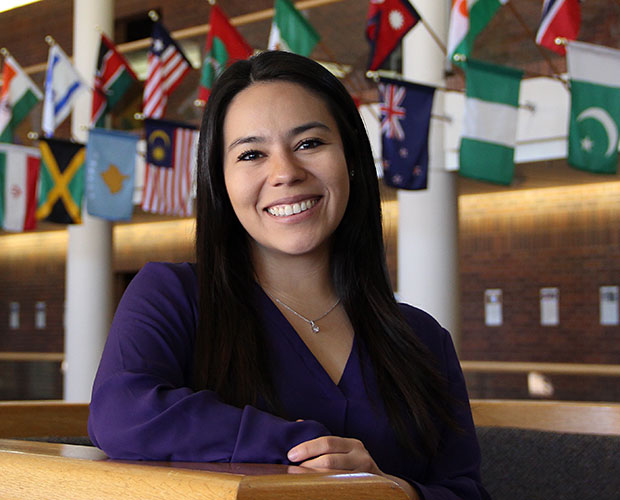Family History Inspires Humphrey School Graduate to Work on Human Rights

Marina Kelly earned her Master of Human Rights (MHR) degree in May 2018 from the University of Minnesota's Humphrey School of Public Affairs, along with six other candidates who made up the first cohort of MHR students at the University.
Kelly is also a recipient of the Thomas R. Pickering Foreign Affairs Fellowship funded by the US Department of State, named for career diplomat Thomas Pickering, which provided her with financial support toward her graduate education and career experience with the Foreign Service.
What sparked your interest in studying human rights?
My father was an asylum seeker in the 1990s from Guatemala. The asylum that the United States offered him, my grandpa, and my great uncle saved their lives. That’s the role that I see for the United States in the world. I want to be a part of that, and I see the Foreign Service as a way to do that.
Professor James Ron (co-director of the University of Minnesota's human rights program) pushed me the whole time I’ve been here to consider why I want to work for the federal government on human rights issues. Some people see government employment and human rights advocacy as being incompatible. But that’s one of my main interests—getting human rights at the forefront of US foreign policy. The United States has been a beacon for human rights. I think it’s important that we continue that trend.
Why did you choose the Humphrey School?
I’m originally from St. Paul, Minnesota, and went to American University in Washington, DC for my undergraduate degree. After I received the Pickering Fellowship, which seeks to promote diversity at the senior levels of the Foreign Service, I knew that I wanted to study human rights in graduate school. I applied to several programs, but the Humphrey School was the only one that offered a master’s degree in human rights.
A Humphrey School highlight:
One of my best experiences at the Humphrey School was helping to plan a November 2017 conference, “Truth, Trials, and Memories: An Accounting of Transitional Justice in El Salvador and Guatemala.” It was a huge three-day international conference, and we brought the truth commissioners and a number of scholars and practitioners from those countries to Minnesota. It was especially important to me since my family is from Guatemala.
What’s next?
Now that I've graduated, I will serve as a Foreign Service officer for at least five years through the Pickering Fellowship. This summer I go through the A-100 training program, and at the end of that I'll find out where my first post will be.

